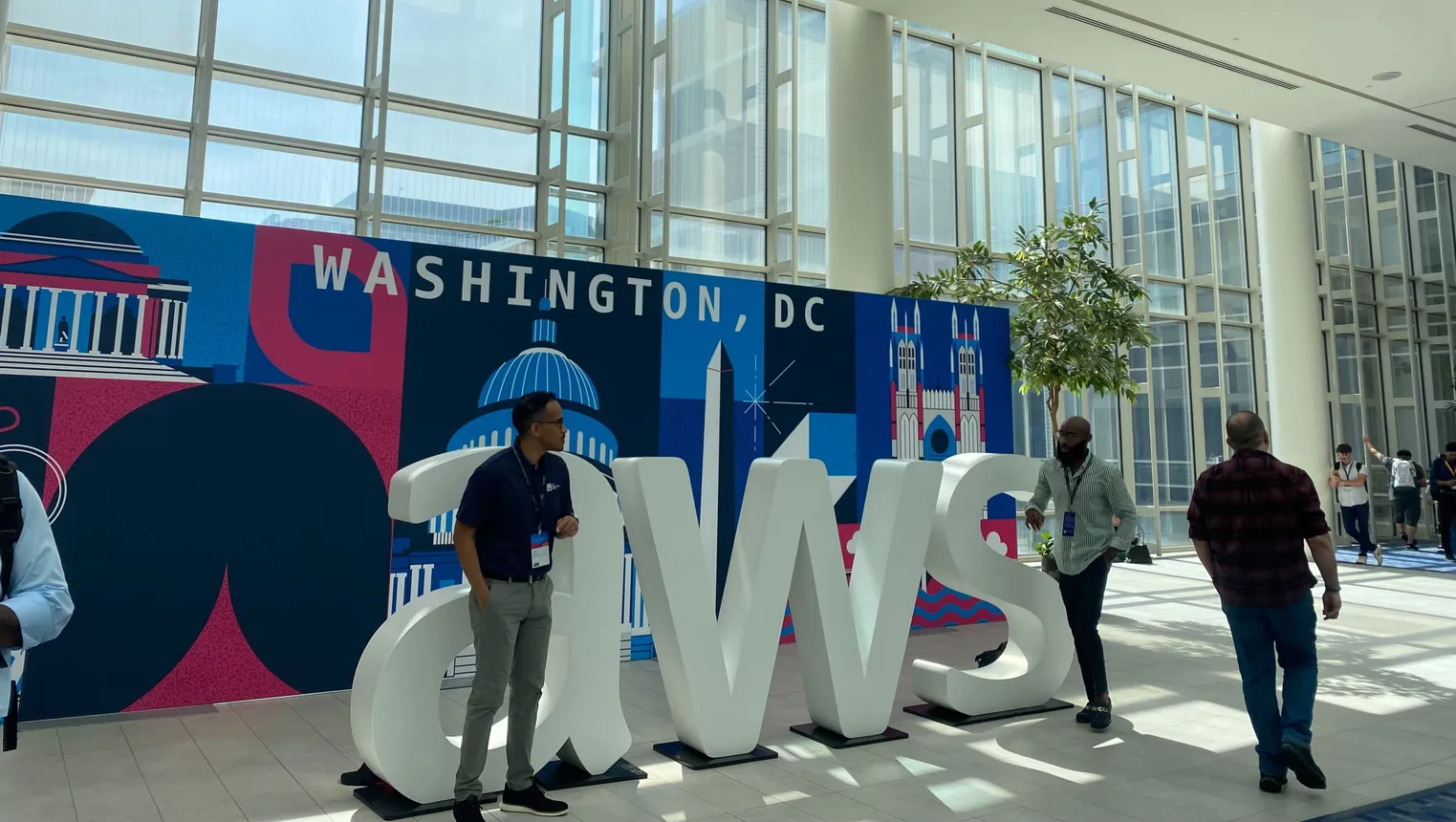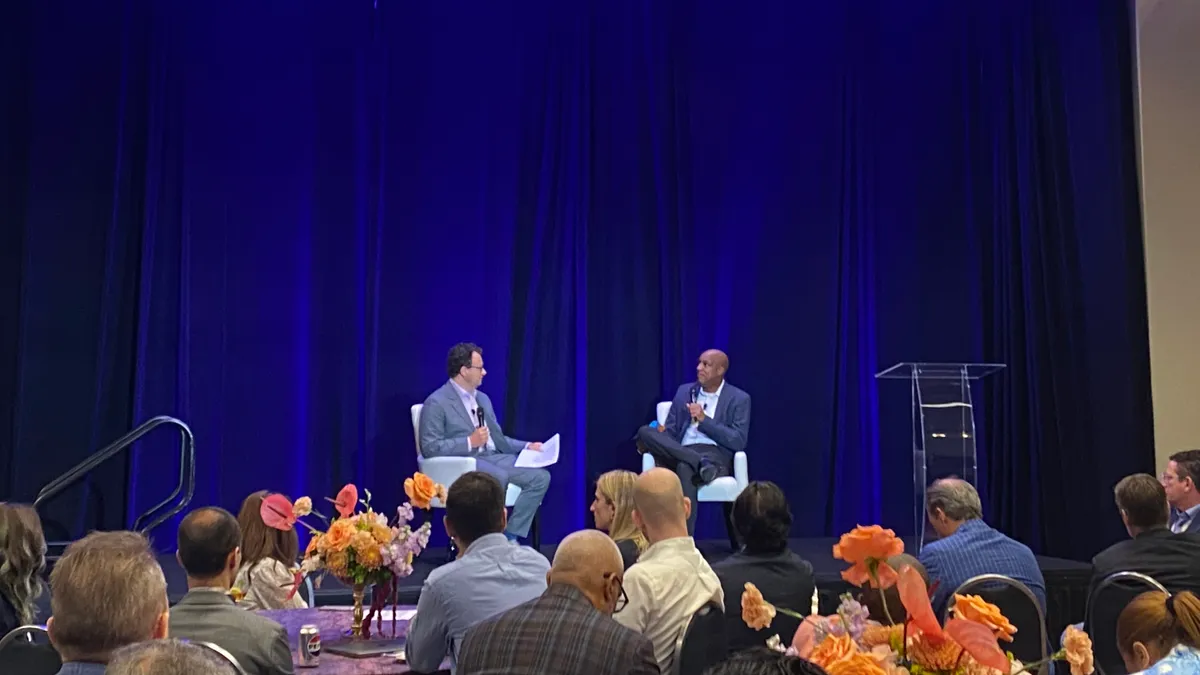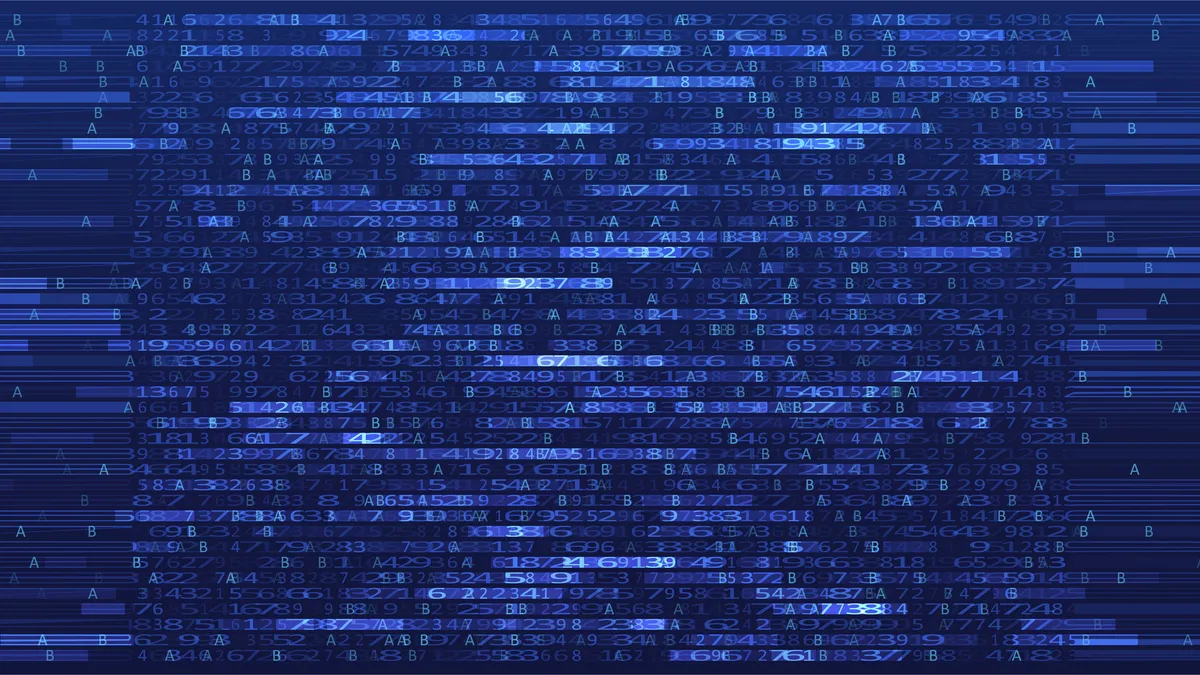WASHINGTON — Operating in a competitive market, AI startup Anthropic hopes its efforts to create a robust security strategy will win over enterprise and public sector customers.
"We have this belief that we can do this responsibly and we can make our models safe, secure, reliable, lower hallucinations,” CEO Dario Amodei said Wednesday during the AWS Summit in Washington, D.C. “We focus very heavily on that, and we don’t see that as being in conflict with having the best model.”
Anthropic’s enterprise pitch — focused on safety, security and responsibility — is an intentional step toward gaining trust in a prolific AI model market. Founded by ex-OpenAI employees in 2021, the startup has steadily built out its portfolio to support business use cases.
The company did not provide a specific number, but millions of people and tens of thousands of businesses are already integrating Claude into workflows, according to an Anthropic spokesperson. Anthropic released a team-focused solution called Projects, a collaborative space within the existing interface to share key AI-generated messages, earlier this week.
Anthropic views itself as a vendor that focuses on enterprise customers, including the public sector, Amodei said.
“One of the main reasons we maintain a consumer product is that it’s very easy if you’re making decisions for an enterprise to play around with the consumer product … just kind of a very quick, lightweight way of prototyping,” Amodei said.
The startup’s newly released Claude 3.5 Sonnet model, which is available for free on Claude.ai and as part of the Pro and Team plan, created a buzz just days after launching.
The LMSYS chatbot leaderboard placed the model second, just below OpenAI’s GPT-4o overall, as of Friday. The position is based on more than 1.3 million user votes. The three-year-old startup also published research that found its Claude 3.5 Sonnet model outperformed key industry players in several tests.
“Even though we’re younger and very under-resourced compared to our competitors, we managed to produce the most capable model but we don’t believe that we sacrificed safety or security,” Amodei said.
Around 8% of the company works directly on security, Amodei said. Anthropic asks third parties to red-team models and conduct policy vulnerability testing, a process Amodei characterized as the AI version of penetration testing.
“The science of training these models, even with all the techniques like constitutional AI and interpretability, is still not exact,” Amodei said. “There will always be a mismatch between what the acceptable use policy says and what the model actually allows, so policy vulnerability testing basically finds places where the two don’t match up.”
Who’s responsible for security?
The burden of secure AI use also rests on the cloud platforms hosting models.
“We’re responsible for providing safeguards, for making sure that models don’t make things up or emit private data or that they can’t be compromised,” Amodei said. “But of course, none of that’s any good if the cloud layer gets compromised.”
Amazon cemented its minority ownership position in the startup in March with the final installment of its $4 billion investment. As part of the deal, AWS became the primary cloud provider for mission-critical workloads. The hyperscaler’s chips support building, training and deploying models.

“We’re able to provide safety, security and privacy not just at the levels we control, but we have a partner to provide the others,” Amodei said.
The partnership also expands Anthropic’s reach even if cautious organizations use the startup’s models via Amazon Bedrock.
“Someone who uses Claude through AWS doesn’t have to rely on Anthropic’s security,” Amodei said. “Something that may be going through their heads is, 'How good is the security of this startup that’s only existed for three and half years?' … I don’t take it personally at all because I would ask the same question.”
Other vendors are doubling down on AI risk mitigation to accelerate enterprise adoption. Google expanded its capabilities to curb hallucinations, a technique known as grounding, Thursday. IBM and AWS collaborated to broaden ways to ensure compliance and manage risks, the companies announced last week.
Providing customers with choice has become a hallmark of Google, AWS and Microsoft's strategy to fast-track LLM adoption, with each hyperscaler provider having its own platform to access a variety of models.
Amodei said the company views its family of models as offering different trade-offs. Anthropic’s Claude 3 Haiku has scalability and is “many times cheaper,” Amodei said, making it a good choice for organizations with limited budgets. Complicated data analysis, on the other hand, is better suited for 3.5 Sonnet or 3 Opus.





















